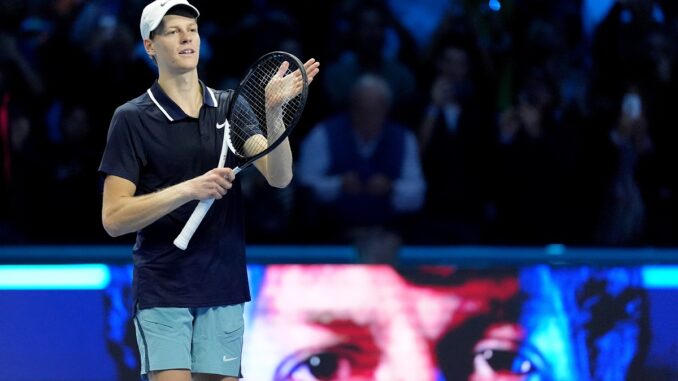
Jannik Sinner had a season to remember as he won two Grand Slam titles, the Nitto ATP Finals and the Davis Cup with Italy. He also ended it as the year-end No. 1 for the first time. However, he has reflected on the “tough times” after his positive doping case and how it made him “fearful with people”. The Italian says he “realised who my real friends are”.
Jannik Sinner has revealed how his doping case gave him “sleepless nights” and made him “fearful” of people and how they would react.
It was announced in August that the world No. 1 had tested positive for the banned substance clostebol earlier in the season at Indian Wells.
Sinner was cleared of any wrongdoing by the International Tennis Integrity Agency, but the World Anti-Doping Agency (WADA) has launched an appeal against the decision and called for a ban.
Sinner has said he is “confident” he will avoid suspension, but told Esquire about the situation: “It was a tough time.
“I couldn’t talk to anyone about it. I couldn’t vent or get help. All the people who knew me and watched me play understood that there was something wrong with me. I spent sleepless nights, because even if you are certain of your innocence, you know that these things are complex.
“Everyone immediately told the truth and that allowed me to play. But at Wimbledon, on the court, I was white.
“Even afterwards, my feeling with people was fearful. I went into training in the Cincinnati clubhouse and thought: ‘How are they looking at me? What do they really think of me?’ I realised who my real friends are.”
Sinner provided a sample at Indian Wells in March which contained low levels of clostebol, while a further sample eight days later also contained the substance.
He successfully appealed the suspension, which enabled him to continue playing, and he finished the season on top of the world as he won the Nitto ATP Finals and Davis Cup.
“I have grown so much this year, both mentally and physically,” he added.
“The results you see now are not sudden. They are the fruits of the hard work we have done over the past two years.
“I am the son of a chef, and I know that you don’t start cooking a good dish in a few minutes. You study, understand, try and try again – then the final dish will be good.”
Sinner heads into the new season with nearly a 4,000-point lead at the top of the world rankings and has asserted himself as the best hard-court player on the ATP Tour.
Asked how he can improve, he said: “In the US Open final, I didn’t serve well. That can happen. But that is a shot for which there is great room for growth.
“I’m convinced that, no matter how much you practise, you always have to deal with a bad day. But it’s important to be able to vary your shots, to feel more confident when going down to the net, to work on your bunt, to have a different feel for the ball.”
Be the first to comment